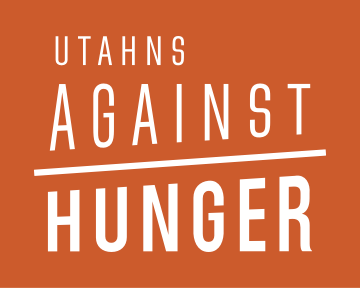Partners for Breakfast in the Classroom is an initiative funded by the Walmart Foundation.
In Utah, approximately 146,000 children struggle with hunger. The School Breakfast Program makes it possible for all school children in Utah to receive a nutritious breakfast every day.
Yet, 34 children in Utah from low-income households ate school breakfast for every 100 that received free or reduced-price lunch in the 2014–2015 school year. While this is an increase from the prior year, there is opportunity for growth.
Serving breakfast in the classroom, as a part of the school day, removes many of the barriers associated with low participation in the program, such as tight bus schedules, late arrivals, and stigma associated with the traditional program.
Utahns Against Hunger, along with the other Partners for Breakfast in the Classroom, is committed to helping schools in Utah increase breakfast participation.
Utah partners include: Utah Education Association, Utah School Nutrition Association, and Utahns Against Hunger; along with national partners: the Food Research & Action Center (FRAC), the National Association of Elementary School Principals Foundation (NAESPF), the School Nutrition Foundation (SNF), and The NEA Foundation.
Benefits of School Breakfast
Missing meals and experiencing hunger impair children’s development and achievement.
Studies published in the American Journal of Clinical Nutrition, Pediatrics, and the Journal of the American Academy of Child and Adolescent Psychiatry document the negative effects of hunger on children’s academic performance and behavior in school.
- Hungry children have lower math scores and are more likely to have to repeat a grade.
- Children experiencing hunger are more likely to be hyperactive, absent, and tardy, in addition to having behavioral and attention problems more often than other children.
- Children with hunger are more likely to have repeated a grade, received special education services, or received mental health counseling than low-income children who do not experience hunger.
Breakfast plays a significant role in shaping the learning environment.
- Eating breakfast at school helps children perform better. Numerous published studies show that academic achievement among students who eat school breakfast tends to improve, especially in vocabulary, math, and standardized tests.
- Students who eat breakfast at school have better attendance and tend to behave better. In studies of school breakfast programs in Massachusetts, Maryland, Minnesota, and Rhode Island, scientists found that students who eat breakfast at school have better attendance records, are less likely to be tardy, and exhibit fewer behavioral and psychological problems than students who do not eat breakfast at school.
- Eating breakfast can improve children’s diets and may reduce their risk for obesity. Studies show that children who regularly eat breakfast have a better quality of nutrient intake and are less likely to be overweight or obese.
To learn more about the research on the benefits of school breakfast, check out these issue briefs highlighting the links between school breakfast and favorable education and health outcomes:
Grant Qualifications
The grant is targeted to help school districts and schools in high need to cover the upfront costs often associated with the startup and implementation of breakfast in the classroom and “grab and go” programs. Grant funds can be used to purchase equipment and supplies, provide limited staff support and training, or procure marketing materials and other related expenses.
Eligible schools must meet the following criteria:
- Either 70% or more students qualify for free or reduced-price (FRP) meals, or else the school operates community eligibility;
- Average daily participation (ADP) in school breakfast is at 50% or less;
- Able to serve breakfast in the classroom at no charge to all students after the morning bell;
- Strong stakeholder support from school leadership and staff;
- 3-year commitment to making reasonable efforts to continue the program; and
- Willingness to promote the program through social media and school district communication channels.
Want to learn more?
Visit www.breakfastintheclassroom.org for more information about the initiative and to download the grant application.
Twitter: @BreakfastClsrm
Facebook: Breakfast in the Classroom

